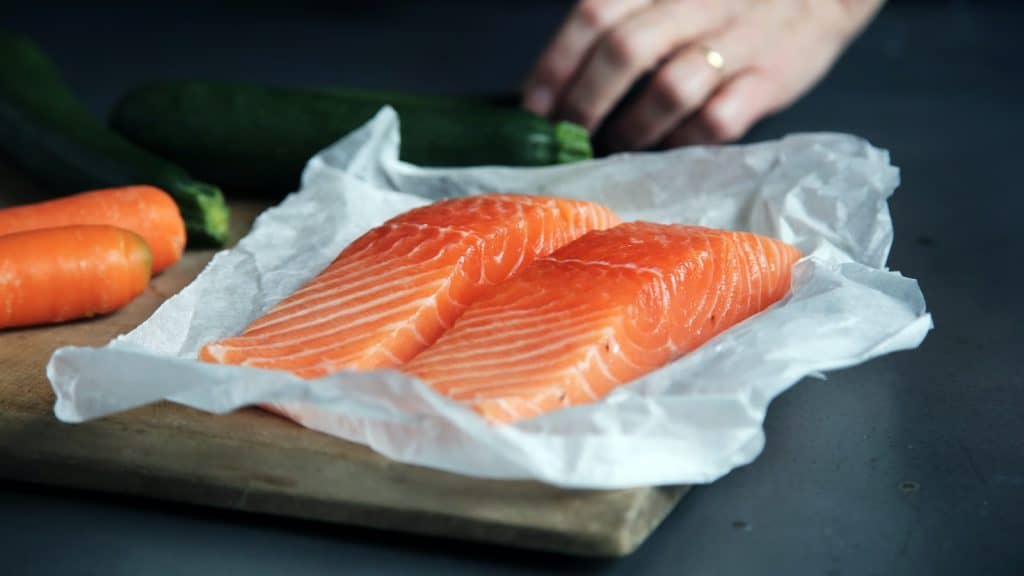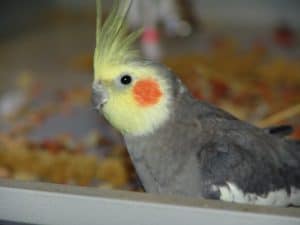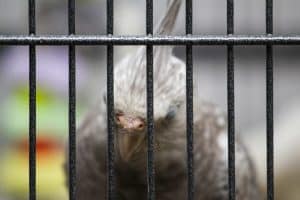Cockatiels are delightful and social creatures that have charmed their way into the hearts of bird enthusiasts worldwide. As responsible cockatiel owners, we strive to provide them with the best possible care, and that includes a well-balanced diet.
In this blog post, we’ll dive into a fascinating question: Can cockatiels eat salmon? This delectable fish is not only a favorite on the human dinner table but also a source of many essential nutrients. We’ll explore the ins and outs of feeding fish to these beautiful birds and the dos and don’ts of incorporating it into their diet.
Understanding the Cockatiel Diet
Before we delve into the world of salmon, it’s crucial to comprehend what makes up a typical cockatiel diet. These small birds require a balanced combination of seeds, fruits, vegetables, and high-protein foods to thrive. They thrive on variety, and a diverse diet ensures they receive all the necessary nutrients to stay healthy.
Benefits of Salmon
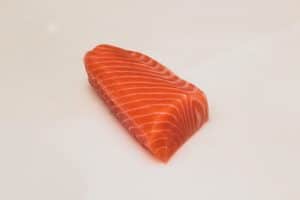
Salmon is renowned for its nutritional richness in the human diet, but do these benefits extend to our feathered friends? Let’s explore whether salmon can serve as a nutritious and delicious treat for your cockatiel.
Can Cockatiels Eat Salmon?
The big question: can cockatiels eat salmon? The answer is yes, but with some essential considerations. While some cockatiels love the taste of this fish, it should only be an occasional treat. Moderation is key, and tiny amounts are enough to satisfy their cravings. Here, we’ll discuss the reasons why it’s crucial to serve fish in small portions to your beloved pets.
Risks and Concerns
Feeding your beloved cockatiels cooked or raw fish can be rewarding, but it’s not without its potential risks and concerns. Here, we’ll delve into the crucial aspects you need to be aware of before introducing this new food into their diet.
1. Salmon Sources and Preparation
When it comes to feeding fish to your cockatiels, the source and preparation are paramount. Make sure the fish you provide is free from added salt and seasonings that can be harmful to your birds. Saltwater fish, especially, can be risky due to their brinier taste and potential for added salt, which can lead to salt toxicity in cockatiels. Always opt for freshwater fish and ensure it’s cooked thoroughly to eliminate any potential parasites or contaminants.
2. Moderation is Key
While cockatiels can enjoy the occasional treat of fish, moderation is the golden rule. Too much of a good thing can lead to health issues. Remember, fish should only be a small part of their diet. Providing tiny amounts in a well-balanced diet is the way to go.
3. Allergies and Digestive Concerns
Just like humans, birds can have allergies and digestive sensitivities. It’s crucial to monitor your cockatiels when introducing new foods, including fish. Keep an eye out for any adverse reactions or digestive issues, such as diarrhea or vomiting. If you notice any problems, consult with a veterinarian for guidance on your bird’s diet.
Preparing Salmon for Cockatiels
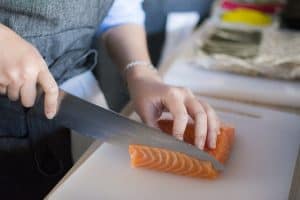
When it comes to preparing salmon for your beloved cockatiels, safety and nutrition should be your top priorities. Here are some essential steps to ensure you’re serving a delicious and healthy treat:
- Selecting the Right Salmon: Opt for fresh, boneless, and skinless salmon. Avoid any fish that has been treated with additives, such as salt or seasonings, as these can be harmful to your bird. Freshwater fish is generally a safer choice for your cockatiel compared to saltwater fish.
- Cooking Methods: The ideal way to prepare salmon for your feathered friends is by baking or steaming it. Avoid frying or grilling, as these methods often involve added oils or seasonings that are not suitable for your bird’s digestive system.
- Seasoning: Keep the seasoning simple. A small amount of plain, cooked salmon without any added salt or spices is the best option for your cockatiel. Remember, they have delicate taste buds, and a little goes a long way.
- Portion Control: Cockatiels are small birds, and they only need a tiny amount of salmon. Start with a small piece, roughly the size of your thumbnail, to gauge their reaction. If they enjoy it, you can offer more in subsequent feedings, but always in moderation.
- Watch for Bones: Carefully check for any remaining bones, even in boneless fillets. Remove them before serving the salmon to your cockatiel to avoid any choking hazards.
Other Healthy Alternatives
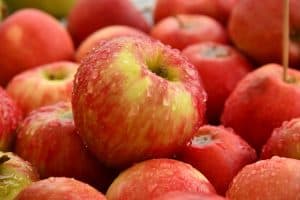
Your cockatiel’s diet doesn’t need to revolve solely around salmon. In fact, there are numerous other healthy alternatives that can contribute to a well-rounded and nutritious meal plan for your feathered friend.
1. Bird-Friendly Fruits: Introduce your cockatiel to a variety of fruits that they’ll relish. Apples, berries, melons, and oranges are rich in vitamins and minerals that can boost their overall health. Fruits also provide essential antioxidants that support their immune system. Remember to remove any seeds or pits from fruits as they can be harmful to your bird.
2. Nutrient-Packed Vegetables: Vegetables like carrots, broccoli, spinach, and bell peppers offer a plethora of nutrients, including beta-carotene, vitamins, and fiber. They not only add diversity to your cockatiel’s diet but also promote strong feathers and vibrant plumage. Fresh, crunchy veggies can serve as an excellent source of mental stimulation and physical exercise for your bird, especially when provided in whole or chopped form.
3. Grains and Seeds: Incorporating grains like rice and quinoa, along with seeds such as millet and sunflower seeds, can be a great way to add a bit of texture to your cockatiel’s meals. These foods offer a variety of flavors and nutrients, making your bird’s diet more interesting and fulfilling. However, remember to serve seeds and grains in moderation, as they are calorie-dense and should be only a part of the overall diet.
4. Protein Sources: While we’ve discussed fish as a protein source, there are other options too. Cooked chicken, lean turkey, and hard-boiled eggs are excellent choices to provide your cockatiel with the protein they need. Just ensure that any meat is boneless and properly cooked before offering it to your bird.
5. Pellets and Commercial Cockatiel Food: Many high-quality cockatiel pellets and commercial bird foods are formulated to provide a well-balanced diet. They typically contain a mix of grains, seeds, vitamins, and minerals to meet your bird’s nutritional requirements. These can be an excellent foundation for your cockatiel’s diet, complemented by fresh fruits and vegetables.
Observing Your Cockatiel
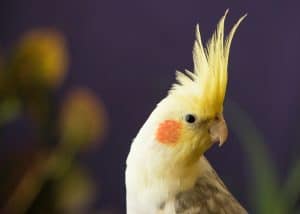
When it comes to introducing new foods to your cockatiel’s diet, careful observation is key to their well-being. Cockatiels can be picky eaters, and their reactions to new foods can vary. It’s important to monitor their responses to ensure they are adapting well to dietary changes.
One aspect of this observation is to look for signs of allergies or digestive issues. Your cockatiel may exhibit symptoms such as diarrhea, vomiting, or changes in their droppings, which could indicate an adverse reaction to a new food. These are clear signals that the new addition to their diet might not agree with them. It’s crucial to note that not all birds will react the same way, so close attention to your individual pet’s responses is vital.
In addition to physical symptoms, observe your cockatiel’s behavior. If they seem disinterested or avoid a particular food, it might not be to their liking. On the other hand, if they eagerly accept the new food and seem to enjoy it, it’s a positive sign. Remember that a gradual introduction of new foods is often the best approach, allowing your cockatiel to adapt at their own pace.
- PREMIUM FORAGING MIX of bell peppers, papayas, pineapples, flax seed and almonds
- HAND-PICKED INGREDIENTS inspired by ancestral feeding habits of Cockatiels
- NATURAL with vitamins and minerals
- NO ADDED FILLERS or artificial preservatives
- PREBIOTICS and PROBIOTICS for digestive health
- OMEGA 3s to support brain and heart health
- VETERINARIAN-RECOMMENDED BRAND with more than 150 years of experience caring for pet birds
Why Cockatiels Enjoy a Varied Diet
Cockatiels eat fish as part of their natural instinct for a varied diet. In the wild, these charming birds exhibit a diverse food preference, foraging for seeds, fruits, insects, and yes, even the occasional fish. This variety in their diet provides them with the essential nutrients they need to stay healthy and maintain their vibrant plumage.
In captivity, it’s crucial for cockatiel owners to replicate this diversity in their pets’ diet. Including high protein foods like fish can be a great way to mimic their natural diet. However, remember that the key to a balanced bird’s diet is incorporating a wide range of different foods, including fresh fruits and vegetables, which ensures that they receive all the necessary nutrients to lead a healthy and happy life.
The Appeal of Freshwater Fish for Cockatiels
Cockatiels, like many birds, have a natural inclination for fresh and natural foods. When it comes to feeding fish to your feathered friend, freshwater fish can be an excellent choice. They are a source of high-quality protein and are less likely to contain harmful substances that can be found in some saltwater fish. So, if you’re considering adding fish to your cockatiel’s diet, lean towards freshwater options, but always ensure they are safe and properly prepared.
While wild cockatiels have access to a variety of natural food sources, our pet birds rely on us to provide them with a balanced and nutritious diet. Incorporating freshwater fish into their meals can be an excellent way to meet their high protein food needs while keeping them happy and healthy. Just remember to maintain moderation and choose your fish sources wisely.
The answer to Can Cockatiels Eat Salmon is?
Serving salmon to your cockatiels can be a delightful and nutritious treat, but it should be done in moderation and with care. A balanced diet that includes a variety of foods, including fruits and vegetables, is essential to keep your birds healthy and happy. Remember to consult with a veterinarian for personalized advice on your cockatiel’s diet.
- Can a Cockatiel be Constipated?
- Can a Cockatiel be kept outside?
- Can a Cockatiel Be Left Alone for a Weekend?
- Can a Cockatiel Be Potty Trained?
- Can a Cockatiel Eat Too Much Millet?
- Can a Cockatiel Fly Without Tail Feathers?
- Can a Cockatoo Live With a Cockatiel?
- Can an Old Cockatiel be Tamed?
- Can Birds Catch Human Colds?
- Can Birds Walk Backwards?
- Can Cockatiels Change Color?
- Can Cockatiels Drink Coconut Water?
- Can Cockatiels Drink Coffee?
- Can Cockatiels Drink Milk?
- Can Cockatiels Drink Tea?
- Can Cockatiels Eat Alfalfa Sprouts?
- Can Cockatiels Eat Almonds?
- Can Cockatiels Eat Aloe Vera?
- Can Cockatiels Eat Apples?
- Can Cockatiels Eat Apricots?
- Can Cockatiels Eat Arugula?
- Can Cockatiels Eat Asparagus?
- Can Cockatiels Eat Avocado?
- Can Cockatiels Eat Bacon?
- Can Cockatiels Eat Banana?
- Can Cockatiels Eat Basil?
- Can Cockatiels Eat Bean Sprouts?
- Can Cockatiels Eat Beetroot?
- Can Cockatiels Eat Bell Peppers?
- Can Cockatiels Eat Blackberries?
- Can Cockatiels Eat Blueberries?
- Can Cockatiels Eat Bread?
- Can Cockatiels Eat Broccoli?
- Can Cockatiels Eat Brussel Sprouts?
- Can Cockatiels Eat Budgie Food?
- Can Cockatiels Eat Cabbage?
- Can Cockatiels Eat Cantaloupe?
- Can Cockatiels Eat Carrots?
- Can Cockatiels Eat Cashews?
- Can Cockatiels Eat Cauliflower?
- Can Cockatiels Eat Celery?
- Can Cockatiels Eat Cheerios?
- Can Cockatiels Eat Cheese?
- Can Cockatiels Eat Cherries?
- Can Cockatiels Eat Chia Seeds?
- Can Cockatiels Eat Chicken?
- Can Cockatiels Eat Chickpeas?
- Can Cockatiels Eat Chocolate?
- Can Cockatiels Eat Cilantro?
- Can Cockatiels Eat Cinnamon?
- Can Cockatiels Eat Clover?
- Can Cockatiels Eat Coconut?
- Can Cockatiels Eat Corn?
- Can Cockatiels Eat Crackers?
- Can Cockatiels Eat Cucumbers?
- Can Cockatiels Eat Dandelion Leaves?
- Can Cockatiels Eat Dates?
- Can Cockatiels Eat Dill?
- Can Cockatiels Eat Dog Food?
- Can Cockatiels Eat Dragon Fruit?
- Can Cockatiels Eat Dried Cranberries?
- Can Cockatiels Eat Eggplant?
- Can Cockatiels Eat Eggs?
- Can Cockatiels Eat Eucalyptus Leaves?
- Can Cockatiels Eat Fennel?
- Can Cockatiels Eat Figs?
- Can Cockatiels Eat Fish?
- Can Cockatiels Eat Flax Seeds?
- Can Cockatiels Eat Flowers?
- Can Cockatiels Eat French Fries?
- Can Cockatiels Eat Garlic?
- Can Cockatiels Eat Ginger?
- Can Cockatiels Eat Grapefruit?
- Can Cockatiels Eat Grapes?
- Can Cockatiels Eat Grass?
- Can Cockatiels Eat Green Beans?
- Can Cockatiels Eat Guava?
- Can Cockatiels Eat Hazelnuts?
- Can Cockatiels Eat Honey?
- Can Cockatiels Eat Ice Cream?
- Can Cockatiels Eat Jackfruit?
- Can Cockatiels Eat Jalapenos?
- Can Cockatiels Eat Kale?
- Can Cockatiels Eat Kidney Beans?
- Can Cockatiels Eat Kiwi?
- Can Cockatiels Eat Lavender?
- Can Cockatiels Eat Leeks?
- Can Cockatiels Eat Lemon?
- Can Cockatiels Eat Lemongrass?
- Can Cockatiels Eat Lentils?
- Can Cockatiels Eat Lettuce?
- Can Cockatiels Eat Lychees?
- Can Cockatiels Eat Macadamia Nuts?
- Can Cockatiels Eat Mandarins?
- Can Cockatiels Eat Mango?
- Can Cockatiels Eat Mealworms?
- Can Cockatiels Eat Meat?
- Can Cockatiels Eat Mint?
- Can Cockatiels Eat Mushrooms?
- Can Cockatiels Eat Newspaper?
- Can Cockatiels Eat Noodles?
- Can Cockatiels Eat Nuts?
- Can Cockatiels Eat Oats?
- Can Cockatiels Eat Olives?
- Can Cockatiels Eat Onions?
- Can Cockatiels Eat Oranges?
- Can Cockatiels Eat Papaya?
- Can Cockatiels Eat Parakeet Food?
- Can Cockatiels Eat Parsley?
- Can Cockatiels Eat Pasta?
- Can Cockatiels Eat Peanut Butter?
- Can Cockatiels Eat Peanuts?
- Can Cockatiels Eat Pears?
- Can Cockatiels Eat Peas?
- Can Cockatiels Eat Pecans?
- Can Cockatiels Eat Pineapple?
- Can Cockatiels Eat Pistachios?
- Can Cockatiels Eat Pomegranate?
- Can Cockatiels Eat Popcorn?
- Can Cockatiels Eat Potato Chips?
- Can Cockatiels Eat Potatoes?
- Can Cockatiels Eat Pretzels?
- Can Cockatiels Eat Pumpkin Seeds?
- Can Cockatiels Eat Pumpkin?
- Can Cockatiels Eat Quinoa?
- Can Cockatiels Eat Radishes?
- Can Cockatiels Eat Raisins?
- Can Cockatiels Eat Raspberries?
- Can Cockatiels Eat Rice Cakes?
- Can Cockatiels Eat Rice?
- Can Cockatiels Eat Salmon?
- Can Cockatiels Eat Scrambled Eggs?
- Can Cockatiels Eat Sesame Seeds?
- Can Cockatiels Eat Snow Peas?
- Can Cockatiels Eat Spinach?
- Can Cockatiels Eat Strawberries?
- Can Cockatiels Eat Sunflower Seeds?
- Can Cockatiels Eat Sweet Potato?
- Can Cockatiels Eat Thistles?
- Can Cockatiels Eat Tomatoes?
- Can Cockatiels Eat Tortilla Chips?
- Can Cockatiels Eat Tortillas?
- Can Cockatiels Eat Tuna?
- Can Cockatiels Eat Turkey?
- Can Cockatiels Eat Walnuts?
- Can Cockatiels Eat Watermelon?
- Can Cockatiels Eat Weetbix?
- Can Cockatiels Eat Wild Bird Seed?
- Can Cockatiels Eat Yogurt?
- Can Cockatiels Eat Zucchini?
- Can Cockatiels Get Fleas
- Can Cockatiels Get Hiccups
- Can Cockatiels Sleep With Noise
- Can Cockatiels Survive In Cold Weather
- Can Cockatiels Swim
- Can Cockatiels Talk How To Get Your Cockatiels Talking
- Can Cockatiels Talk
- Can Cockatiels Wear A Harness
- Can Cockatiels Wear Diapers
- Can You Be Allergic To Cockatiels
